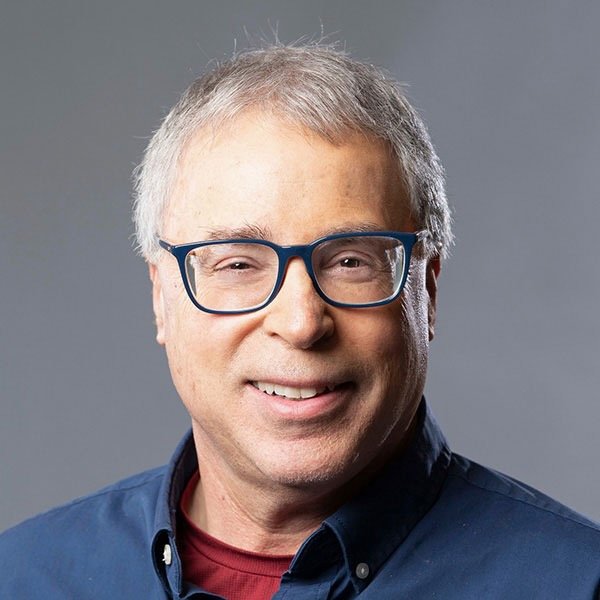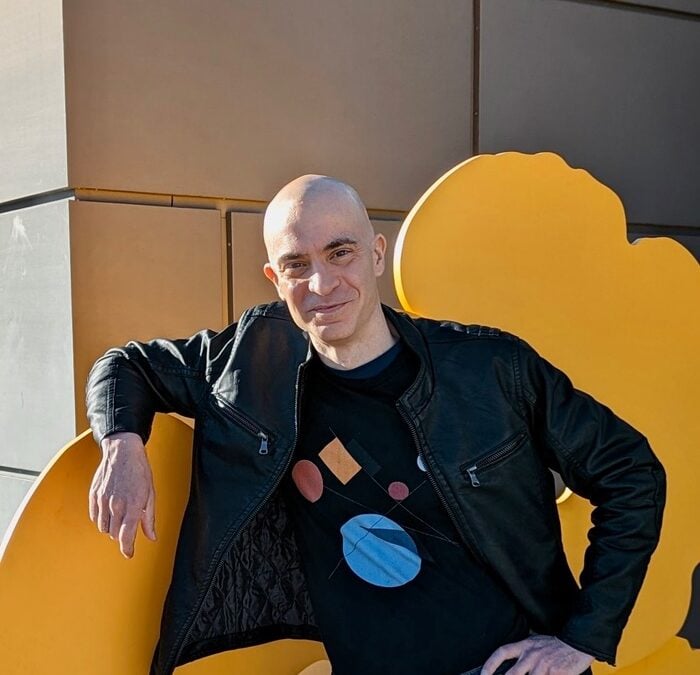There is a split in the medicine of aging. It’s between the established practice of treating individual ailments, like diabetes or heart disease, and a theory that the entire aging process can be slowed, maybe even reversed.
This is not a hard divide. So-called traditional doctors encourage patients to watch what they eat, exercise, not smoke, and more to soften aging and improve their health. But a small, buzzworthy group believes that aging can be arrested on a fundamental level, by reversing the process. They focus on attacking the 12 “hallmarks of aging,” such as accumulated damage to DNA and RNA, abnormal functioning of the cells’ energy-producing mitochondria, and chronic inflammation throughout the body.
Barzilai’s Prominent Role in Antiaging
Some in this camp attract considerable media attention, such as Xprize founder Dr. Peter Diamandis, stem-cell entrepreneur Dr. Robert Hariri, Facebook billionaire Yuri Milner, motivational speaker Tony Robbins, and wealthy self-experimenter Bryan Johnson (infamous for briefly getting blood-plasma infusions from his teenage son).

The name Nir Barzilai may be in the news less, but he’s prominent in this community. For instance, he serves on the advisory board of the $101 million Xprize Healthspan contest to develop revolutionary life-extension technologies.

Some reverse-aging proponents are derided as speculative grandstanders. But Barzilai has serious scientific cred. His paragraphs-long list of roles includes director of the Institute for Aging Research at the Albert Einstein College of Medicine and director of the National Institutes of Health’s Center of Excellence in the Basic Biology of Aging.
He’s also a co-founder of the Academy for Health & Lifespan Research. Here he keeps company with reverse-aging celebrities, including David Sinclair, a Harvard researcher working on reprogramming human cells to their youthful state, and Juan Carlos Izpisua Belmonte, another reprogrammer who directs much of the research at $3 billion antiaging company Altos Labs. (On March 3, prominent aging researcher Matt Kaeberlein announced on LinkedIn that he was leaving the organization, accusing Sinclair, the president, of making repeated false scientific statements.)
A Major Metformin Clinical Trial
Today, Barzilai is most known for his efforts to promote a generic diabetes drug, metformin, as a treatment for all 12 aging hallmarks. Along with organ-transplant drug rapamycin, it’s one of the most-celebrated medications for off-label use to arrest aging.

Both drugs have their skeptics, such as diabetes and cancer expert Dr. Charles Brenner at City of Hope, who suspects they are ineffective against aging and possibly even harmful. Funding permitting, Barzilai aims to address such skepticism this year by launching an FDA-approved clinical trial called TAME, for Targeting Aging with Metformin.
I spoke with Barzilai while researching Worth’s feature article “The Wild Science of Growing Younger.” He’s a prolific, wide-ranging thinker, sometimes providing fascinating answers that had nothing to do with my original question. I’ve extracted some of the best parts of our discussion, edited for length and clarity.
Worth: Is there anything to the scientific argument that aging is a disease?
Barzilai: I believe aging is the cause of most of the diseases we have. It’s the mother of the diseases. I don’t have any problem with saying that…Okay, so let’s say aging is a disease, and therefore, we have to allow the treatment of aging. And if we are also in a social medicine situation, then we have to provide people with what’s reasonable for them to fight aging.
There’s the popular perception of billionaires who want to live forever, upload themselves, all that kind of stuff. What does that do to your work?
We need an academy because we need to discuss things. We want to be leaders, we want to write white papers, we want to support programs. But in order to get the academy, we are bringing in [to our meeting] between 10 and 15 billionaires…They have to pay $75,000 to come in, rub shoulders with us. And actually, that’s not all they’re doing. They’re also supporting different aspects of research…So, to a certain extent, those billionaires are helping us drive and accelerate the science.
Which billionaires are not helping us? Bryan Johnson [currently valued at about $400 million]…I do appreciate Bryan Johnson in several ways. First of all, I’m also pissed that I cannot stop my aging. I think I’d like him to infect everyone because without spending money, we can all maximize our exercise, nutrition, sleep, and social connectivity…but an influencer com[ing] in saying, “Hey, look at me, I’m stopping aging,” is also a recruitment for our field.
My problem with him is that he is doing an experiment on himself…Part of the experiment, only he can do. For example, how many people are going to take blood from their kids? How many people are going to eat the shit that he’s having?…And he would like to think that he’s paving the [way to] immortality for everybody else. And he’s not. It’s not going to be accepted. And it’s a noise that is also causing us damage.
I was discussing this concept of escape velocity with Peter Diamandis: If I can extend my life another 30 years, and 30 years from now, there will be new technology. It ended with uploading your brain. Is that helpful? Or does this cause exaggerating or stereotyping of what you’re doing?
We’re looking at several issues here. One is Dorian Gray [who] stopped getting older…And I think this is what we’re dealing with now. Not that we stop aging, but there’s a way to delay aging dramatically…
The second issue is reversing aging…Regeneration of organs like the liver or kidney or pancreas are things that are in biotech [and] starting to be in humans. We certainly can regenerate blood cells and deal with genetic programming of cells. We can deal with some terrible diseases…But even if you can regenerate the liver, you cannot reverse the aging of the whole body…
And [then there] is the Peter Pan scenario…There’s an erasing of aging when it comes to stem cells. And there’s a lot of advances here. But the day when you’re 20—and you’ll come and get a treatment every few months or every few years, and you’ll stay 20—is not in a timeline that I think is relevant to Diamandis’s hope.
So those are things that can happen? You don’t necessarily think there’s a scientific barrier to any of those?
There are two scientific barriers. The first one is that our lifespan as a human species now is 115 years. It’s a statistical number. We know that somebody lives to be 122. So we have this statistical barrier, this real barrier.
But we die [on average] when we’re 76 in the United States. So there’s certainly 30 years, 35, 40 years to capture, without doing something more dramatic as changing our genome. Can we eventually be older than 115? I believe it’s possible. I believe that if you do the Peter Pan, and you get the treatment, you can probably break 115 years just by doing that. Of course, whether you’re successful or not, you have to start [at] 50 years and then count 115 years. So the proof of that is 170 years away.
I understand that you are doing a formal clinical trial on Metformin of its effects on aging.
The reason I’m doing TAME is to force the FDA to accept the concept that we can prevent a bunch of age-related diseases. This is the only reason we do it—because the clinical trials have been done. Okay. We know that if you give metformin, you prevent diabetes. We know that if you give metformin, you prevent heart disease in clinical trial. We know in clinical trial that if you have mild cognitive impairment, then giving metformin will slow the deterioration. We know, in clinical trial, that people on metformin die less than any other from all causes…
The point with FDA is to bring it together as a study…because we say that aging drives diseases. We’re agnostic to the diseases. We don’t really care what disease you’re going to get. Whatever it was, we’re going to prevent it.
And so the objective then is, if you can show that you’re able to address any particular disease, that will fit the way the FDA looks at things?
Not disease, it’s a cluster. It’s not going to be significant for any disease. Imagine that we do this study. And after two years, we significantly prevent cardiovascular disease. The FDA will say you have to stop this study because you have to offer the drug to the placebo [group]. And we’ll never show that it’s not only about cardiovascular disease…So we need to design a study that won’t be significant in any one [disease], but it will be significant together when we look at the cluster of diseases and mortality.
Are the actual mechanisms understood right now? Do you know why it’s having these effects on the immune system or on mitochondrial function or things like that?
Metformin affects all the hallmarks of aging. If you’re asking me, “Okay, but which of the hallmarks of aging is it attacking first?” I don’t know if I can tell you. I think there are two of them, actually. But it’s hard to dissect because it also works differently on different organs. So in the immune system, it might work different than on the liver. So it’s hard to say that, but it’s true for all drugs. We don’t know, what’s their mechanisms.
I have a paper from last year, and another paper coming now, on all the FDA-approved drugs that target the hallmarks of aging. And there are 12 of them that have been for another purpose, like metformin was diabetes. And all of a sudden, it’s doing other things. All of a sudden, it’s good for COVID. So there are 12 drugs like that…They’ve been in human studies, they have safety. We can actually start using them. Doctors can repurpose drugs.
People who have diabetes, if the diabetes is treated, of course, they’re going to get healthier overall. Maybe just controlling blood sugar level in itself provides all these benefits?
That’s ridiculous. It’s not glucose-dependent at all. The papers show that metformin is better than other drugs for diabetes to decrease mortality. In those studies, the people on metformin had worse glucose control, for example…And let me say another thing. Rapamycin, which is an important drug in longevity, increases glucose levels, and still is helpful for healthspan. So it’s not about glucose. It’s about what the drugs are doing otherwise.







